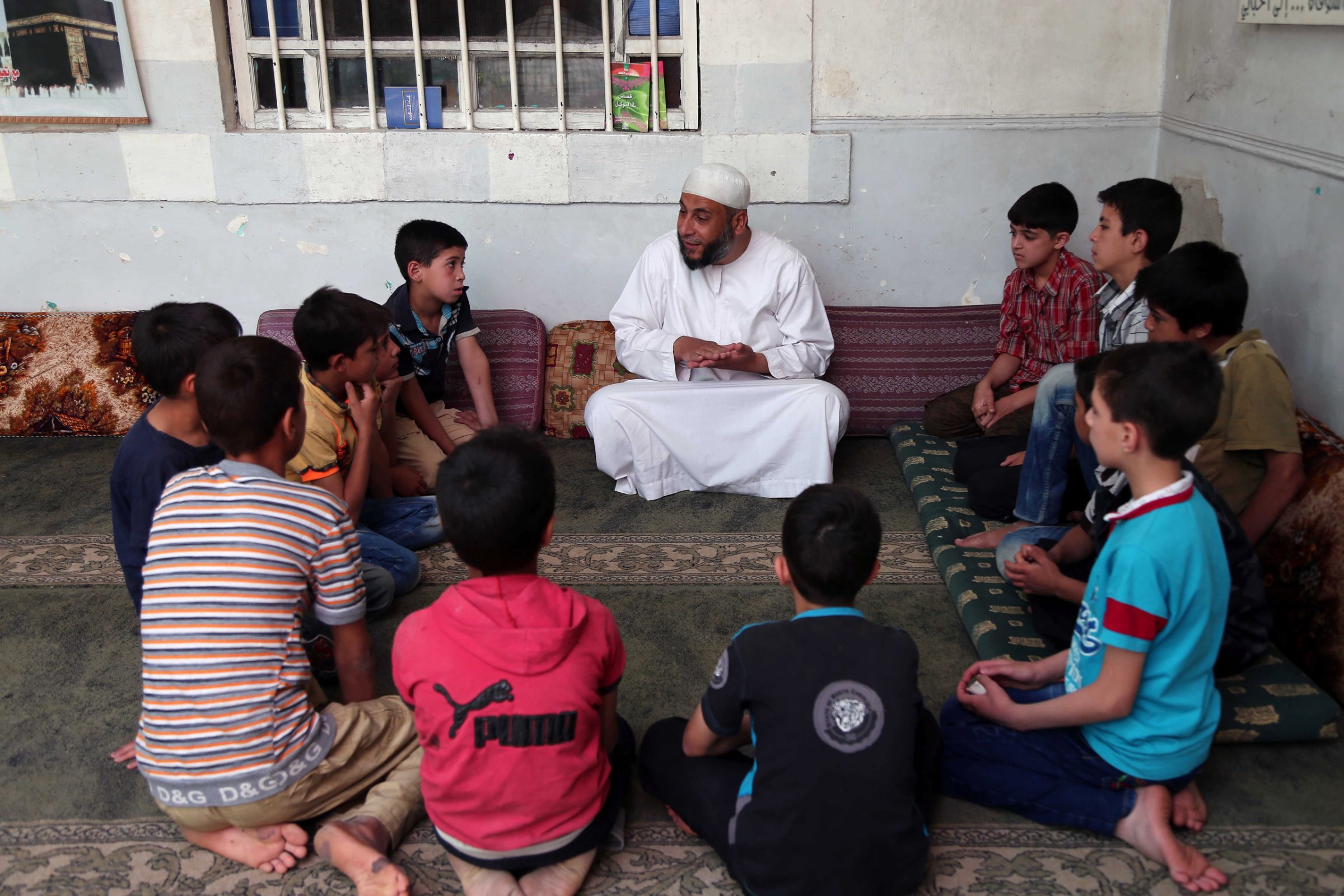
At no point in American history has it been more critical to have a dialogue between Muslims and non-Muslims. And at no point of the year is better to make that happen than this month of Ramadan.
With some politicians using American Muslims as a political football, the levels of anti-Muslim crimes have dramatically increased. As I write in my new book, Talk To Me: Changing the Narrative on Race, Religion, and Education:
We cannot live our lives in fear and ignorance of the other, of what we do not understand. … We must cut through the rust that prevents us from recognizing one another, champion a jihad that involves communicating with people of different races and faiths … and do so with a progressive and educated narrative.
Fear is a powerful motivator, and American Muslims have the lowest approval rating of any religious demographic in America. That fear isn’t based in education; it’s based in ignorance. Too few Americans have ever met a Muslim, and therefore too few can differentiate between true Islam and what extremists teach.
The good news is not only that we can remedy this education gap, but also that history is on our side. Throughout history, Islam and Muslims have played a pivotal role in America’s progress. Prior to America’s founding, African Muslims represented up to 15% of those enslaved in the “new world.” Muslims literally helped build this country under forced slave labor—our blood sweat and tears are just as important a contribution as anyone’s. Moreover, when the U.S. declared independence from Britain, none other than the Muslim majority nation of Morocco was the first country to recognize America’s sovereignty.
Morocco’s conscious choice to recognize America—certainly to Britain’s objection—was perhaps a reminder of a remarkable event during Prophet Muhammad’s lifetime. After suffering brutal persecution under Mecca’s oppressive government, Muhammad ordered his companions to either bear the persecution peacefully or migrate from their ancestral homes. Several migrated and under Muhammad’s direction, sought refuge under the righteous Christian King of Abyssinia, which the King granted. This Muslim-Christian alliance—certainly to the Meccan government’s objection—lasted centuries, fostering peace, education and progress.
Muslim Americans have defended the U.S. in every war this nation has ever fought, and to this day thousands serve in each branch of the armed forces. Nearly one in 10 American physicians are Muslim—a reflection of Islam’s fundamental obligation on Muslims to serve all humanity. As America is a racially diverse nation, the American Muslim community represents among the country’s most racially diverse demographics.
But you wouldn’t know any of this from listening to some politicians. America is at a crossroads, and it is critical we walk down the same road together.
There are more than 3 million American Muslims, each with an exciting history, dynamic family and aspirational future. This Ramadan, go meet them. Attend a mosque’s iftar dinner (breaking of the fast) or perhaps even fast with an American Muslim friend. If you don’t know any American Muslims—you do now by reading this. Come talk to me.
Ramadan comes from a root word that means to “heat intensely,” or “to burn.” During Ramadan, Muslims fast to wage an internal Jihad, an internal struggle to burn away the impurities that afflict their bodies, minds and souls. It is a month to mend hearts, mend souls and mend relationships both with God and with fellow human beings.
We need not look at history alone to appreciate the connectedness of Islam and America. As we mourn the passing of the great Muhammad Ali, we see a man who never compromised his faith as a Muslim, his identity as a black man, or his nationality as an American. Ali did all this because he was an American and because he was a Muslim. As His Holiness the Khalifa of Islam recently advised: “true integration is to love the country in which you live and to be completely loyal to it.”
Ramadan is our opportunity as Muslims and non-Muslims to truly integrate with one another. It is our opportunity to burn away the rust, fear and ignorance which currently risks an uncertain future, and replace it with trust, compassion and education. The road here has not been easy, but that is why it is worthwhile. Use this Ramadan to stay on the road more travelled—a peaceful and educated unity between Muslims and non-Muslims.
This act will ensure a continued progressive struggle that has already spanned hundreds of years.
More Must-Reads from TIME
- Donald Trump Is TIME's 2024 Person of the Year
- Why We Chose Trump as Person of the Year
- Is Intermittent Fasting Good or Bad for You?
- The 100 Must-Read Books of 2024
- The 20 Best Christmas TV Episodes
- Column: If Optimism Feels Ridiculous Now, Try Hope
- The Future of Climate Action Is Trade Policy
- Merle Bombardieri Is Helping People Make the Baby Decision
Contact us at letters@time.com